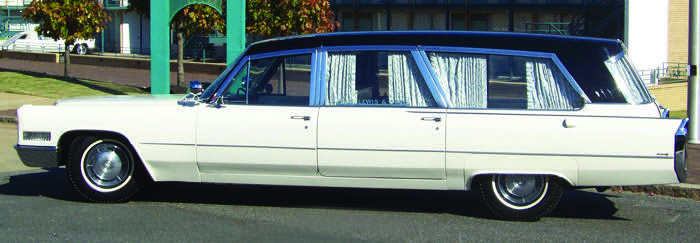National News
MLK Jr.’s Hearse And A Mission To Save History
Many people like the idea of owning a piece of history. On occasion they get the opportunity.
It could be a letter written by Theodore Roosevelt. It could be a check signed by Shoeless Joe Jackson. It could be packaged space food that an Apollo astronaut took to the moon and back.

[cs_content][cs_element_section _id=”1″][cs_element_row _id=”2″][cs_element_column _id=”3″][cs_text _order=”0″]
Many people like the idea of owning a piece of history. On occasion they get the opportunity.
It could be a letter written by Theodore Roosevelt. It could be a check signed by Shoeless Joe Jackson. It could be packaged space food that an Apollo astronaut took to the moon and back.
In short, museums aren’t the only ones that gather the artifacts and documents that help tell our nation’s story. Items of cultural or historical interest often end up in private hands, tucked away in storage or in someone’s personal library.
But that raises a question: Do some artifacts hold such significance that they should be available for everyone to see rather than closeted away from public view?
“Sometimes an item does emerge that seems like it’s much too important a piece of history for it to end up in a private collection,” says Gary Zimet, whose memorabilia business Moments in Time specializes in rare letters, manuscripts and other historic artifacts.
Zimet encountered one such item recently, the 1966 Cadillac Superior Coach hearse that 50 years ago was used for Martin Luther King Jr.’s first funeral service in Memphis. After the service, the hearse carried King’s body to the Memphis airport to be flown back to Atlanta and laid to rest.
The hearse’s owner, who prefers to remain anonymous, wants to sell it, but not just to anyone, Zimet says.
“He discussed with me the idea of selling the vehicle to a corporation or philanthropist who would be willing to donate it rather than keep it hidden away privately,” he says.
The asking price: $2.5 million.
The goal is for the hearse to end up in a museum, preferably the National Civil Rights Museum in Memphis, or the National African-American Museum at the Smithsonian.
A website, www.PreservingTheDream.com, has been established where people can learn more about the hearse and the role it played in the nation’s history.
King died at the hands of an assassin in Memphis in 1968, and this year marked the 50th anniversary of his death. On the day he died, the hearse transported King’s body from St. Joseph Hospital to the R.S. Lewis and Sons Funeral Home.
The hearse had been in storage for about 40 years before it was obtained from the original owner, Memphis Cadillac Superior Coach dealer Zane Smith. Five years ago it was restored to its original condition.
Zimet says the hearse needs to be preserved for posterity for several reasons, including:
• Few King artifacts are available for public viewing. King was the most influential Civil Rights leader in history, and yet there are limited museum displays with authentic artifacts related to him. When the National African-American Museum at the Smithsonian opened in 2016 it had no King artifacts at all.
• The education and inspiration value could be great. In a museum, the hearse can be seen by millions of people and will educate and inspire countless others for generations to come.
• It symbolizes King’s sacrifice. The hearse is a stark reminder of what happened in 1968 and of the sacrifice King made for the Civil Rights movement. “This priceless artifact is tied directly to his martyrdom,” Zimet says.
“The owner wants to sell it, but he also wants it to be seen by the rest of the world,” Zimet says. “His concern is that the hearse ends up in a respectful home.”
Gary Zimet is president of Moments in Time, which deals in rare original autographs, historical documents and other artifacts. Among the items he has sold over the years were a letter from President Jimmy Carter to his brother Billy, a letter from Martin Luther King Jr. to Rosa Parks, and Abraham Lincoln’s signature on a copy of the 13th Amendment to the U.S. Constitution.
[/cs_text][/cs_element_column][/cs_element_row][/cs_element_section][/cs_content]


